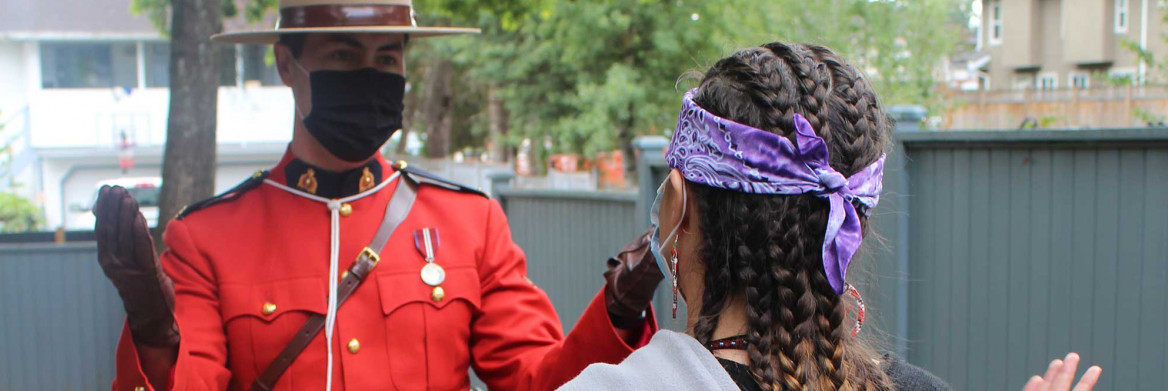RCMP officers in Surrey, B.C. are helping young Indigenous women turn the page on their troubles with the law and their mistrust of the criminal justice system.
It began when managers and staff at the A'mut Youth Program – a residential facility designed as an alternative to incarceration for young Indigenous girls – began looking for someone with experience in the youth justice field to meet with clients.
The intent was to help the girls, who range in age from 12 to 18, feel more comfortable around police and the justice system.
"We wanted to help build a positive relationship,
" says Lisa Lothian, Project Implementation Manager for the Elizabeth Fry Society of Greater Vancouver, which is responsible for A'mut.
Some might consider that a tough task given the mistrust of police and, historically, the RCMP by Indigenous people.
"For a lot of Indigenous youth there is a massive disconnect from their current lives and their heritage,
" says Lothian. "The disconnect affects their sense of wellbeing, their cultural identity, and we want to restore that so they can help themselves.
"
Fortunately, A'mut Youth Program staff were acquainted with the Surrey RCMP's Yankee 30 Car (Y30) – an intervention program where police and a probation officer check in with youth in the corrections system. The initiative is a partnership between the RCMP and BC Ministry of Children and Family Development Youth Justice Services.
Book club discussions
Cst. Ryan Moore worked with Y30 and got involved with A'mut clients in June 2021.
To help set a positive tone for a meeting with one young girl who was particularly nervous around police, it was suggested by A'mut staff that Cst. Moore and the client read and discuss a book – thus an exclusive book club was born.
The book chosen was Girl on a Train, by Paula Hawkins.
"The book of course is fiction but has many true themes and scenarios that have happened to people in the real world,
" says Moore, a member of the Haida – Indigenous people who have traditionally occupied Haida Gwaii.
The pair's talks covered multiple facets of life and challenges such as relationships, domestic abuse and crime.
"We often would tie the discussions into real-life scenarios we had experienced, which took the conversations to the next level,
" says Moore.
He describes the meetings as opportunities to "bridge the gap with an at-risk person.
"
"We did that through relationship building and story sharing, me sharing my upbringing with her,
" adds Moore.
The pair met for three one-hour sessions and Lothian says Cst. Moore had an "enormous impact
" on the well-being of the client, who has since returned to her community.
The pair was even pictured in a raising-of-hands ceremony, which is a way to honour a person's Indigenous ancestors.
"I will forever remember hearing about her telling her mom that through these book clubs, she has been able to address her fear of RCMP and acknowledge that there are cool cops out there,
" says Lothian, who notes the book club meetings continue.
